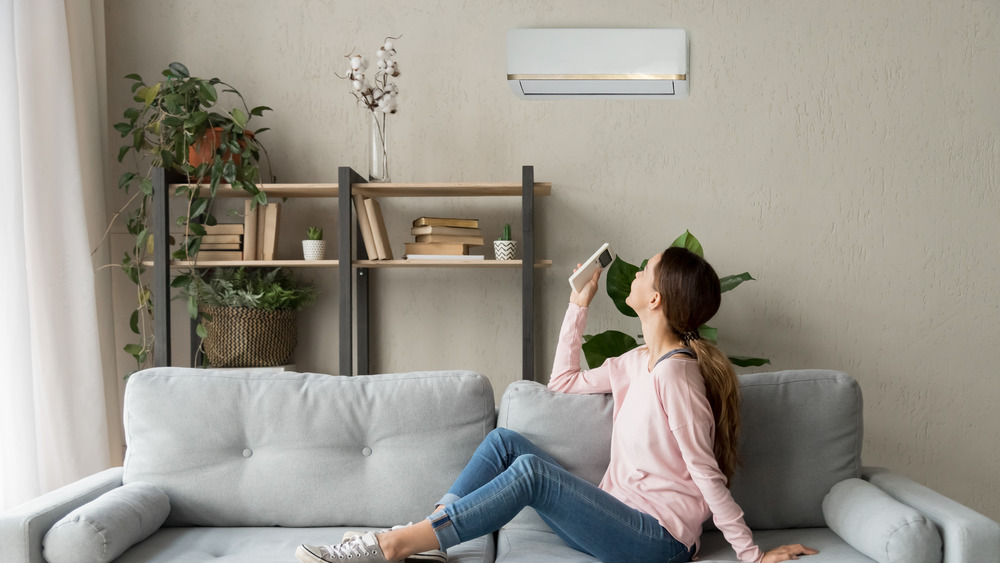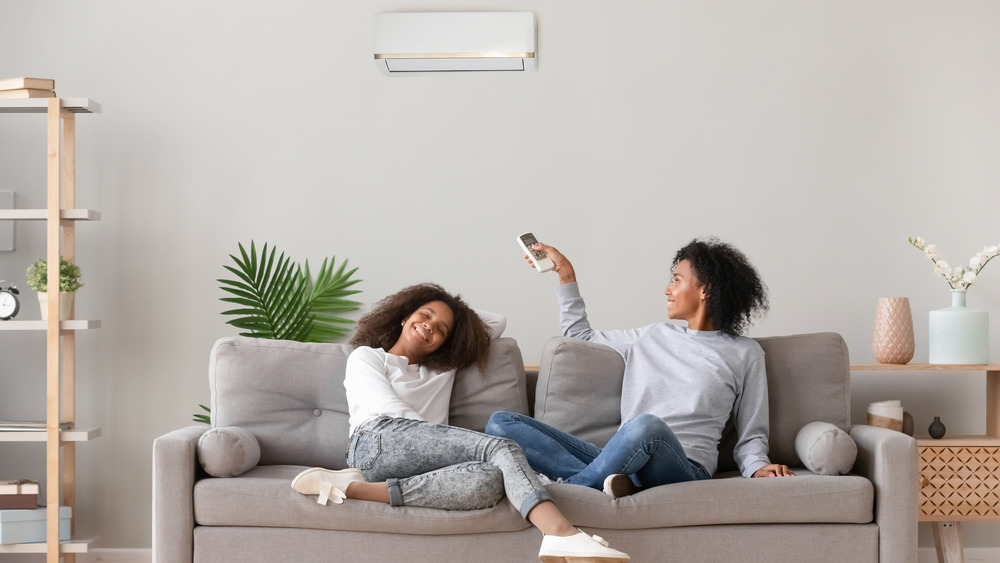The Surprising Way Air Conditioning Affects Your Body
Ice cold air circulating from an air conditioner can be such a relief on hot and humid days, whether it's at home, at work, in your car, or in a shopping center. But how does it affect your health? Well, air conditioning has its pros and cons, but people with chronic respiratory illnesses need to take caution.
You might be surprised to learn that air conditioning is good for your sleep, respiratory system, heart, and brain. In fact, the A/C in hospitals can even help patients' health, according to a 2020 study published in BMC Public Health. Having air conditioning in your bedroom will help you sleep better because your body naturally cools itself to get ready for slumber. In other words, you won't sleep well if it's too hot. According to Healthline, the best temperature for sleep is about 65 degrees Fahrenheit. Some people will prefer a few degrees cooler or warmer, but air conditioning can help regulate that.
The downside is that A/C could worsen asthma and allergies, and possibly spread disease (via Healthline). Let's take a closer look at all the ways air conditioning can impact your body.
How A/C affects your health
Have you ever thought thinking was easier in cooler temperatures? A 2016 study published in PLOS Medicine looked at students living in dorms during a heatwave. One group of the students had A/C, while the other group did not. There was a temperature difference of about 10 degrees. Each morning, the researchers sent the students cognitive tests to complete on their phones. It turns out, those with A/C did significantly better than those without it.
Air conditioning can also be good for your heart and lungs by reducing air pollution, according to a 2017 study. Researchers found that air pollution causes an increase in blood pressure and air conditioning that filters out air pollution can be beneficial for you.
The relief of cool air does have drawbacks, however. Quickly going from sweltering heat and humidity from outside to cool and dry air indoors can negatively impact the respiratory system, especially for anyone with COPD, asthma, or other chronic respiratory illnesses, according to a 2018 study. Air conditioning can also cause allergies and spread diseases when there's no air filter to help remove pathogens from the air. Air conditioning units and central air conditioning need to be maintained well. A/C filters should be changed monthly, especially if you have allergies. Don't overuse air conditioning or keep it cooler than necessary.
What happens when you don't have air conditioning
Having the air conditioner on when it's hot and humid outside is fantastic, and there are many ways it can impact your health. The risks of not having access to air conditioning could be dire. According to the Centers for Disease Control and Prevention, being exposed to hot temperatures creates concern for developing heat stroke, leading to permanent health problems and even death. Some other health concerns due to heat include heat exhaustion and fainting. Since the person experiencing heat stroke often doesn't notice their symptoms, they need those around them to recognize the signs and get them medical attention.
Someone with heat exhaustion will be sweating excessively and seem confused. Someone with heat exhaustion needs to be taken out of the hot environment to cool off and get some ice water. An ice pack placed on the back of the neck can also help them cool down. It's crucial to treat heat exhaustion as soon as possible, so it doesn't lead to heatstroke (via CDC).
Someone experiencing heatstroke will seem confused, irritated, extremely tired, euphoric, disorientated, and feel hot to the touch. If you see someone like this, get them out of the hot environment and call 911. While waiting for the ambulance, try to cool them off with some ice water and ice packs.



